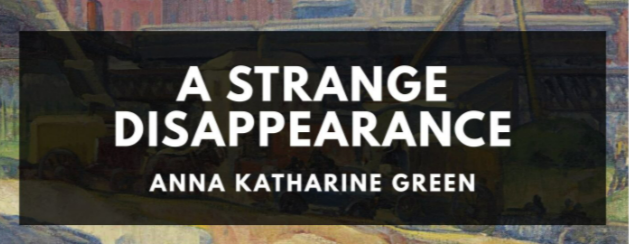CHAPTER XIII — A Strange Disappearance
byCHAPTER XIII – A Strange Disappearance reveals the deep emotional fragmentation experienced by a man torn between guilt, memory, and the persistent hope of reconciliation. He begins by recalling the last time he saw Luttra, a moment clouded by sorrow and helplessness. Her departure was sudden, and its silence left more damage than confrontation ever could. After his father’s death, grief compounded his regret. His mourning was not just for the dead, but for the living woman he had failed to understand or protect. The announcement of Evelyn Blake’s engagement did not bring comfort but instead deepened his disillusionment, making his marriage feel like a hollow act made worse by the contrast of genuine affection he saw elsewhere.
Trying to move forward, he turned to art, hoping that painting Luttra’s image would purge her from his thoughts. But the effort only sharpened her presence in his mind. Every brushstroke brought her closer, more vivid, more painful. What began as a means of closure became a method of reattachment. He realized that no amount of distraction could erase her. The Countess, with all her beauty and wit, could not make him forget. His indifference to others highlighted the depth of what he had lost. He came to understand that his feelings were not a passing ache but a persistent call. One that demanded resolution, not avoidance.
With no clarity from police reports and no desire to share his shame, he decided to act alone. He retraced memories, recalled half-seen moments, and trusted instincts more than logic. A flicker of hope appeared one night when he thought he saw her—an outline in a familiar shape near his own doorstep. That glimpse revived him more than weeks of investigation ever had. Suddenly, his world narrowed to a single possibility: that Luttra had not vanished entirely, but had remained close. It was a fragile hope, but enough to move him again. So he followed the trail, not through high-society circles but into dimly lit alleyways and streets where sorrow often goes unnoticed.
His path led to places few of his background ever visited—areas heavy with hardship, anonymity, and pain. These streets, filled with quiet desperation, mirrored his inner state. Here, it was easier to vanish, to become unseen. He wondered if Luttra, ashamed of her family’s crimes, had chosen such obscurity as her only form of escape. The thought that she might have traded dignity for safety haunted him. He imagined her enduring cold, hunger, and fear—yet still alive. That small belief kept him going. The guilt of what he did or failed to do no longer mattered. Only her survival did. He needed to find her, not for peace, but for atonement.
This chapter illustrates how obsession grows when regret has no outlet. The narrator is not noble in his suffering—he is flawed, reactive, and often misdirected. But he is honest in his longing. His love for Luttra is not idealized; it is wounded and stubborn, shaped by missed chances. The emotional landscape of the chapter echoes what many feel when they realize too late what they once had. It speaks to those who understand that sometimes, love is only seen clearly in its absence. The narrator’s journey becomes a reflection of the quiet endurance that defines many lost relationships—where hope survives in shadows, and redemption is chased through silence.
Through this lens, the narrative captures the pain of unresolved love and how it reshapes identity. He is no longer the man he was when Luttra left. His pride has been broken down, his vision blurred by time and remorse. And yet, within that brokenness, he finds purpose. This transformation is the chapter’s quiet triumph: showing how a man’s heart, though slow to change, can still be turned by the echo of love not yet silenced. His search may be uncertain, but it is genuine. And that sincerity, even when born from failure, offers the reader a trace of something enduring—an emotional truth that lingers long after the chapter ends.

